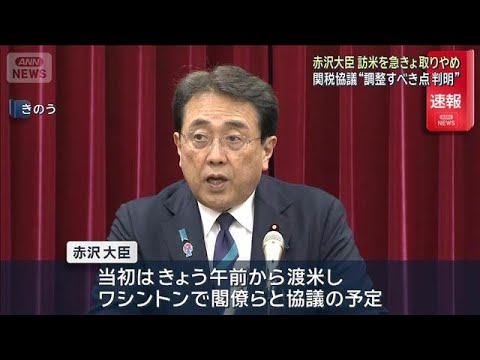A recent news development states that Japan's eminent economist, Mr. Akasawa, cancelled his impending trip to the United States in light of the ongoing tariff debate. This sudden change throws into uncertainty further negotiations and potential economic policy compromises between the two nations. The reasons behind this abrupt cancellation remain veiled, leading to speculative discourse among policymakers and economists.
Tariff negotiations are a critical issue in Japan, affecting not only the health of its domestic industries but also its global economic relations. Japan maintains a delicate balance in its trade relationships and views these negotiations as instrumental toward achieving harmony. The abruptness of Mr. Akasawa's decision indicates a potential geopolitical urgency that the Japanese public is interested in understanding better.
In the US or EU, tariff talks are also given significant importance considering their impact on the national economy. An unanticipated cancellation of a critical diplomacy meeting can lead to speculation, economic uncertainties, and may impact stock market performances. Such last-minute changes also fuel critical discussions about bilateral relations and economic policies.

